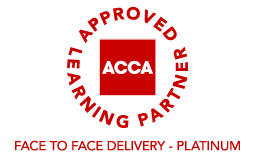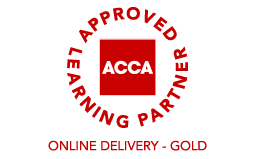If you’re wrestling with the question, “Why should I become an internal auditor?,” here’s our answer. If you want to add value to an organization by flagging procedural and operational issues which might cause problems during an external audit and recommend processes to improve the company’s accounting and efficiency, internal auditing is for you.
An internal auditor is a financial professional who examines, reviews, and scrutinizes a company’s financials and business operations to ensure the organization has accurate accounting, up-to-date and correctly filled out statements, and proper accounting procedures compliant with government regulations.
We’re a CIA-training Dubai-based institute, and in this write-up, we’ll give you the lowdown on how to become an internal auditor.
Read on to learn the steps you need to take to become an internal audit specialist.
1. Get the education or the experience.
Demonstrate your commitment to an internal auditing career by obtaining a bachelor’s degree in accountancy, finance, commerce, business economics, business management, mathematics, or other relevant fields. A master’s degree should also definitely help.
While in college or graduate school, pick courses and electives that cover finance, commerce, business, and analytics, among other subjects. Your goal is to learn the theory and practice of financial and operational business activities while you’re in university.
That being said, note that you can become an internal auditor without a college degree. Someone with a high school diploma, an associate degree, a general certificate of education, an A-level, or equivalent education can become an internal auditor if they have ample on-the-job internal audit experience.
In this case, one’s demonstrable or evident experience must be in the following areas of specialization:
- Internal audit
- Quality assurance
- Risk management
- Compliance
- External audit
- Internal control
2. Get certified.
After obtaining a suitable college/master’s degree (or — if you have no bachelor’s degree —accumulating the necessary, hands-on experience in relevant audit and assessment disciplines), you can get certified as an internal audit professional.
Certified Internal Auditor® or CIA
If you have ever asked yourself, “What qualifications do I need to be an internal auditor?,” this is your answer: get the CIA designation.
You see, a suitable college or graduate education (or the relevant hands-on experience) can get you a job in an auditing firm or the audit department of a company. However, you may have a better chance of landing a leadership post or a role with significant responsibilities if you are a Certified Internal Auditor.
The CIA program is a rigorous one. However, it will provide you with practical internal audit know-how and teach you how to be a good internal auditor.
The CIA Program: An Overview
The CIA is a designation you earn by satisfying the program’s requirements, and you keep it by following its code of ethics and undertaking continuing professional education.
To join the program, you will need:
- A master’s education, a bachelor’s degree, an active internal audit practitioner designation, or five years of relevant work experience; active university students in their senior year of college or active students in Internal Audit Education Partnership (IAEP) schools may also enroll in the CIA program
- A valid, government-issued proof of identification
- A character reference provided by your supervisor or someone with a Certified Internal Auditor, Certified Government Auditing Professional, Certification in Control Self-Assessment, Certified Financial Services Auditor, Certification in Risk Management Assurance, or Qualification in Internal Audit Leadership designation.
To exit or complete the program, you must:
- Pass the three CIA exams
- Accumulate relevant work experience; one year if you have a master’s degree, two years if you have a bachelor’s degree, and five years if you have an internal audit practitioner designation
University students who’ve been allowed to sit for the CIA exams must also graduate (and fulfill the work experience required of bachelor’s degree holders) before they can obtain their CIA designation.
Internal Audit Practitioner
An internal audit practitioner (IAP) designation is an excellent transitory certificate for entry-level internal auditors. It is one of the pathways toward becoming a Certified Internal Auditor. Even if you’re not aiming for a CIA, this certification should still prove helpful in demonstrating your internal audit foundation skills and knowledge.
If you are working in a related role and are asking yourself, “Should I become an internal auditor?,” getting this designation may help you gain clarity.
Other Certifications
You can also obtain other designations, such as:
- Association of Chartered Certified Accountants (ACCA)
- Chartered Financial Analyst (CFA)
- Certified Public Accountant (CPA)
- Certified Government Auditing Professional
- Certification in Control Self-Assessment
- Certified Financial Services Auditor
- Certification in Risk Management Assurance
- Qualification in Internal Audit Leadership
One or more of these should demonstrate the breadth and depth of your knowledge and expertise in business operations and financial activities.
3. Gain domain knowledge.
After gaining the requisite internal audit knowledge and experience through the CIA program, your next step should be to study different types of businesses or a specific industry.
Your choice will determine your career trajectory. If you intend to work as a consultant, gaining knowledge in several industries will help.
If you plan to work exclusively for a company, you should immerse yourself in that company’s industry. Focusing on one industry will also help if you intend to become a consultant specializing in one sector (e.g., oil and gas, textile manufacturing, construction, etc.).
Become an Internal Auditor
There’s a three-step process to becoming an internal auditor: getting educated, getting certified, and gaining domain knowledge.
To become an internal auditor, you should consider becoming a Certified Internal Auditor. A CIA designation proves you have the education, training, and experience to add value as an internal auditor to any organization.
Phoenix Financial Training is a training institute in Dubai.
We offer face-to-face and online financial training courses to help you earn your CIA designation and become an internal auditor.
Contact us to enroll in our CIA study package and ace your CIA exams.



